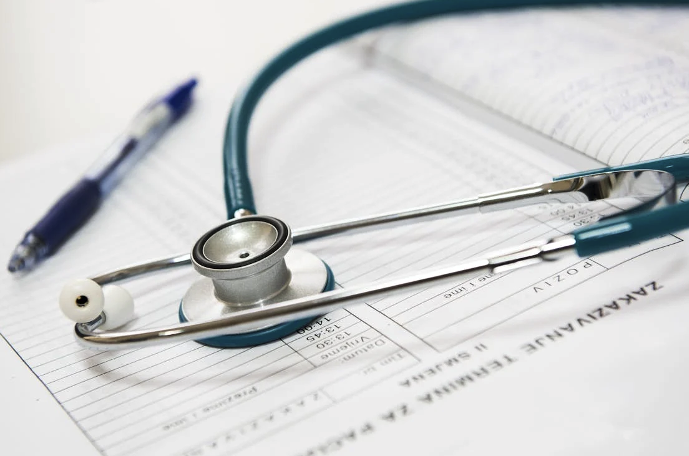
Suffering a personal injury can be a traumatic experience. The path to recovering compensation for your losses can also be challenging. Most victims struggle to navigate the legal complexities in the aftermath of the accident.
A key component of an insurance claim or lawsuit involving a personal injury is medical documentation. It can be a key piece of evidence in such cases and can serve as the foundation of an entire case. To make the most of it, though, the documentation needs to be complete and accurate. This involves getting medical attention right after the injury, sticking to recommended treatments, and keeping records of all the medical care you receive.
Medical documentation is the written records of a patient's medical care. This can take many forms. The most common type of medical document is your medical record, which is the official documentation for your treatment, diagnosis, and other related healthcare. Medical records can also include your medical history, such as laboratory tests or records of past treatments.
To show for your medical expenses, you can use medical documentation such as bills related to your injury. This includes expenses for the surgery, hospital stays, medication, physical therapy, and rehabilitation.
While you can certainly use medical documentation from healthcare professionals who treated you, you can also use expert testimony from doctors that you hired specifically to examine your injuries and provide their professional assessment. Such medical documentation can help strengthen your case. Having more than one doctor provide their expert testimony can help provide a variety of medical perspectives on the injury. It can add more credibility to your claim.
Some medical documentation can be available in digital format. Photographic evidence can also serve as medical documentation in personal injury cases. Photos of injuries after the accident or later through the recovery process can provide visual medical documentation of the severity of the injuries and the progression over time.
You can also choose to present more specific medical documentation of your injury and recovery, such as Functional Capacity Evaluations (FCE) and Independent Medical Examinations (IME) to help you prove any impairments caused by the injury.
Personal injury cases are based on the concept of negligence, which is a broader term used for errors, wrongdoing, recklessness, or any action or inaction that caused harm to others. To establish liability, you need to prove that the other party was responsible for your injuries. While police reports, eyewitness statements, surveillance footage, and other evidence can be important, medical documentation is often the most critical piece, especially when it comes to recovering compensation for your medical bills and expenses.
Medical documentation provides information about the cause of the injury, establishing the critical link between the injury and the events that caused it. For example, if you suffered a car accident, the emergency room report can help you prove that you suffered the injury as a result of the collision. More detailed medical examination can help you prove that the injury was caused by the accident, and is not a result of a preexisting condition. You can also use imaging results, such as MRI scans or X-rays, to reinforce your case.
The severity of the injury in an accident is a measure of the impact of the incident on the victim’s life. A minor bruise would not have the impact of a traumatic brain injury (TBI). This makes the severity of injury an important aspect of a personal injury case. The insurance company or court will not simply take your word on the severity of your injury. This means you have to rely on medical documentation that provides a detailed description of the injury, treatment plan, and recovery time.
It's worth noting that as a victim you can be entitled to economic and non-economic expenses. So, if you suffer pain and suffering, such as post-traumatic stress disorder (PTSD), anxiety, or depression, you can seek compensation for this suffering. Medical documentation can also help you prove non-economic damages. For example, you can present medical records from a mental healthcare professional to prove the impact of the injury on your mental health.
Documentation for your injury responds to the treatment, and how long it takes for you to recover, can also help your case. If the injury has caused you to suffer from loss of earning potential, your medical records could help you prove this to an insurance company or a judge or jury in court.
As a victim of an injury, one of your key goals should be to recover maximum compensation for your suffering. Medical documentation can help you calculate full and fair compensation. By detailing the severity of your injuries, the treatments required, and the lasting effects on your life, medical documentation enables your legal team to create a solid case.
It ensures that all costs, such as future medical bills, lost income, and pain and suffering, are considered. Without thorough documentation, proving the full extent of the injury's impact becomes significantly more difficult. While non-economic expenses are more challenging to calculate and prove, you can get guidance from your attorney through the process.
If you can support your claim with medical documentation, it can elevate your position in negotiations with the insurance company. You are more likely to secure a higher settlement if your click is backed by solid medical documentation. When records show consistent treatment and diagnosis, insurers find it harder to dispute the claims, as they are backed by objective medical proof.
Medical documentation holds the key to a successful personal injury claim, but accessing and obtaining the medical documentation can often be challenging. Having an experienced attorney who is well-versed in Colorado Springs personal injury laws can help you gather evidence, negotiate with insurance companies, and handle other legal aspects of the case.